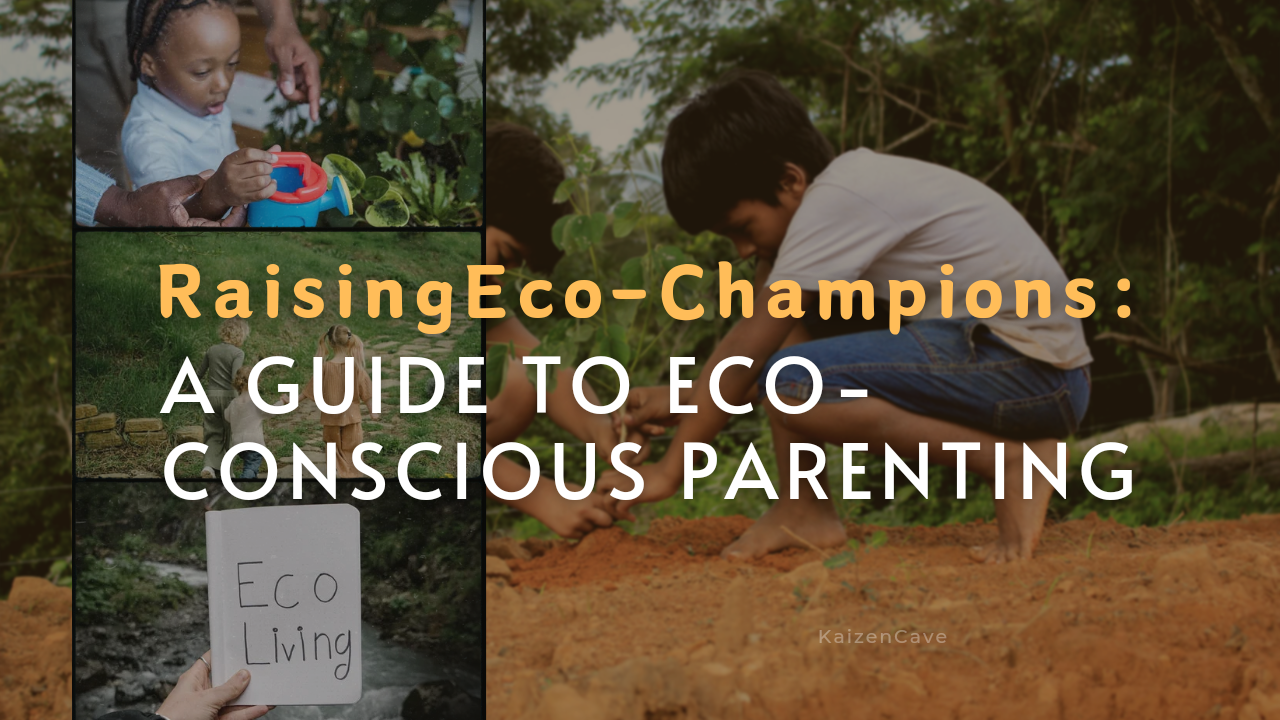The Importance of Eco-Conscious Parenting
In a world grappling with environmental challenges, raising eco-conscious children is a crucial step towards a sustainable future. Eco-conscious parenting involves instilling values that prioritize environmental responsibility and stewardship.
Nurturing Environmental Stewardship in Children
As parents, we play a pivotal role in shaping the perspectives of the next generation. Nurturing environmental stewardship in children not only ensures a healthier planet but also empowers them to become advocates for positive change.
1. Setting the Foundation
Lead by Example
Children absorb behaviors by observing their parents. Embrace eco-friendly practices in your daily life, demonstrating the importance of sustainable living through your actions.
Creating a Green Home Environment
Transform your home into an eco-friendly haven. Incorporate energy-efficient appliances, use eco-friendly cleaning products, and adopt practices that reduce your household’s carbon footprint.
2. Teaching the Basics of Sustainability
Explaining the Concept of Eco-Footprint
Break down the concept of eco-footprint in a way that children can grasp. Help them understand how daily choices, from the food they eat to the products they use, impact the environment.
Introducing Reduce, Reuse, Recycle
Teach the mantra of reduce, reuse, recycle. Make it a fun and creative learning process, encouraging children to find innovative ways to repurpose items and minimize waste.
3. Connecting with Nature
Outdoor Activities and Nature Walks
Foster a love for nature by engaging in outdoor activities and nature walks. Explore local parks, forests, and beaches, allowing children to connect with the natural world.
Gardening as a Family
Involve the family in gardening activities. Planting and caring for a garden not only teaches valuable lessons about ecosystems but also instills a sense of responsibility.
4. Eco-Friendly Lifestyle Choices
Sustainable Meal Planning
Introduce sustainable meal planning, emphasizing the importance of locally sourced and seasonal produce. Involve children in meal preparation, making them conscious of the environmental impact of their food choices.
Choosing Green Products
When shopping, involve children in choosing eco-friendly products. Explain the significance of opting for items with minimal packaging and those made from sustainable materials.
5. Waste Reduction Strategies
Minimizing Single-Use Plastics
Teach children the adverse effects of single-use plastics and work together to minimize their use. Encourage reusable alternatives such as water bottles and lunch containers.
DIY Crafts from Recyclables
Turn recycling into a creative activity. Engage in DIY crafts using recyclable materials, fostering both environmental awareness and imaginative thinking.
6. Educational Initiatives
Incorporating Sustainability in Education
Collaborate with schools to incorporate sustainability into the curriculum. Encourage projects and discussions that focus on environmental issues and solutions.
Visits to Eco-Centric Places
Take family trips to eco-centric places like nature reserves, botanical gardens, or environmental museums. These outings provide hands-on learning experiences and inspire a deeper connection with nature.
7. Responsible Consumerism
Conscious Toy and Clothing Choices
Opt for toys and clothing made from sustainable materials. Discuss with children the importance of responsible consumerism, emphasizing quality over quantity.
Discussing the Impact of Consumerism
Initiate conversations about the environmental impact of consumerism. Help children understand the concept of mindful purchasing and the role it plays in sustainability.
8. Balancing Screen Time with Nature Time
Setting Limits on Screen Time
Establish reasonable limits on screen time. Encourage outdoor play, nature exploration, and imaginative activities to create a balance that promotes a love for nature.
Promoting Outdoor Play
Highlight the joys of outdoor play. Whether it’s building forts, climbing trees, or simply enjoying a picnic, outdoor activities foster a connection with the natural world.
9. Crafting Eco-Friendly Celebrations
Sustainable Birthday Parties
Host eco-friendly birthday parties by opting for reusable decorations, serving sustainable snacks, and organizing activities that promote environmental awareness.
Green Holiday Traditions
Create green holiday traditions by emphasizing experiences over material gifts. Incorporate eco-friendly decorations and practices into festive celebrations.
Conclusion
In conclusion, eco-conscious parenting is an investment in a sustainable and thriving future. By instilling eco-friendly values and practices in our children, we not only contribute to environmental preservation but also raise a generation of compassionate and responsible individuals.

FAQs
- How can I make eco-conscious parenting enjoyable for my children?
- Incorporate eco-friendly practices into fun activities, turning learning about sustainability into an engaging and exciting experience.
- At what age can I start teaching my child about sustainability?
- Early exposure is beneficial. Simple concepts can be introduced as early as preschool age, gradually deepening their understanding as they grow.
- What if my child shows resistance to eco-conscious practices?
- Approach it positively. Engage in open conversations, address concerns, and involve them in decision-making processes to create a sense of ownership.
- Are there online resources for eco-conscious parenting ideas?
- Yes, there are various websites and blogs offering tips and activities for eco-conscious parenting. Explore them for inspiration and guidance.
- How can I involve my child’s school in promoting eco-consciousness?
- Initiate discussions with teachers and school administrators, sharing ideas for integrating sustainability into the curriculum and organizing eco-friendly events.


Bookmarking this! The practical advice is something I’ll definitely be coming back to.
The elegance of The prose is like a fine dance, each word stepping gracefully to the next.
The depth of The research is impressive, almost as much as the way you make hard to understand topics captivating.